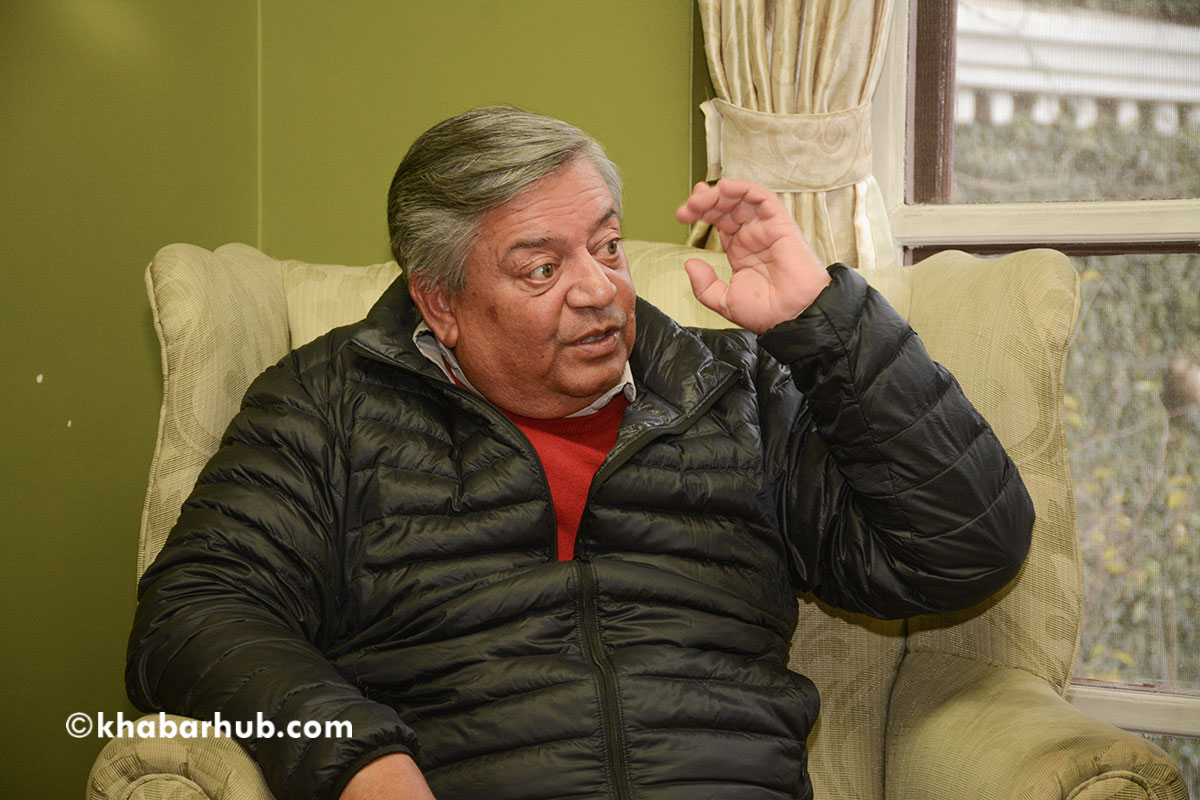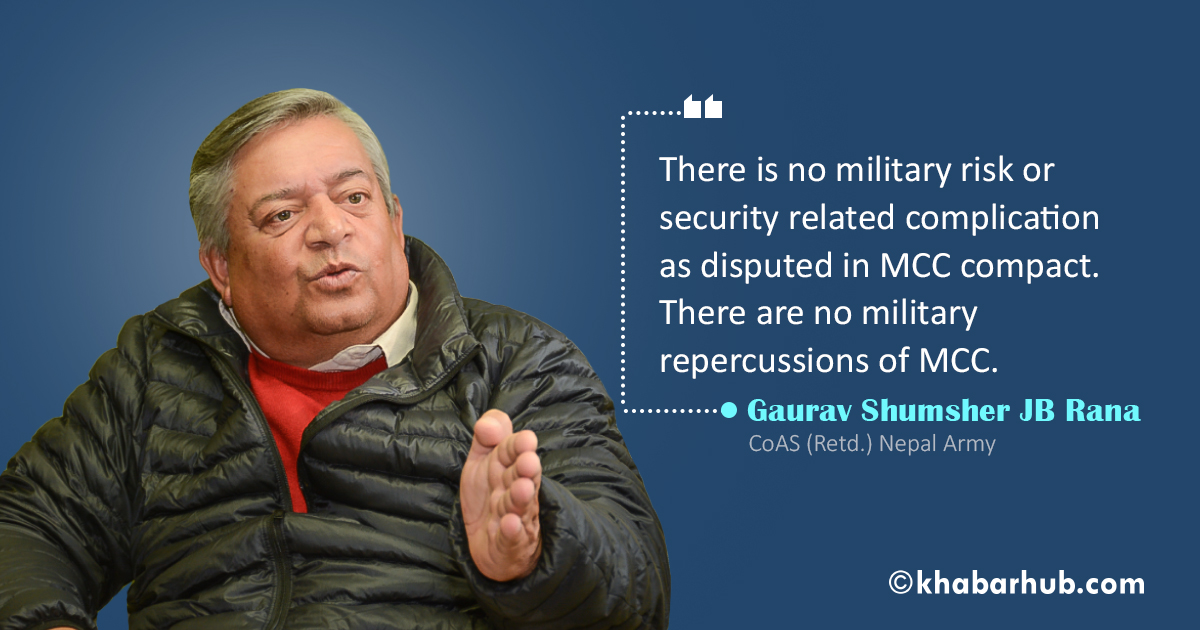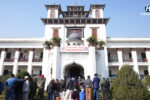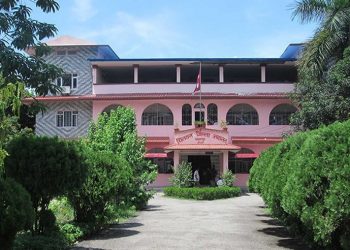Millennium Challenge Corporation (MCC) Compact has gained the attention of most of the people these days. The 500-million-dollar mega project is waiting for parliamentary ratification.
Some skeptics speculate the MCC grant is part of the Indo-Pacific Strategy and deserves reconsideration, the professional strategist, scholars and most of the senior leaders of the political parties have been talking about the urgency to accept the grant as it has no connection with military strategy.
Khabarhub, this time approached a scholar, military strategist and experienced Chief of Army Staff (Retd.) Gaurav Shumsher Jung Bahadur Rana to shed light on the MCC grant, its connection with IPS and its implications. Here are the excerpts of the interview:
Nepali politicians especially the ruling party’s leaders seem divided on MCC issue. Some say it is part of the Indo-Pacific Strategy with some military intent in it. As a retired Chief of Army Staff, what is your analysis?
MCC doesn’t have a military component in it, however, it touches some issues related to national security. Everything is judged as something subject to duality. In politics also they talk about hawks and doves.
I see no point in linking MCC with Indo-Pacific Strategy (IPS), I see no link between them. The issue is highly politicalized. As a retired army chief, I always try to analyze the issues putting national interest at the center. There are often two school of thoughts influencing the perception: idealistic and realistic. When the idealists believe that man has decent nature; humanity is the governing principle for these people whereas anarchists believe that the world is anarchic, there are chaos, misunderstanding and quarrels everywhere.
If we look at our ancient legends and the works by Manu or Kautilya, we find them talking about similar things like, Matsya-niti; talking about one’s interest.

MCC is a half a billion-dollar grant. There are no strings attached to it. I think that is in the national interest. The area for the investment of the grant is also already identified and fixed; it’s going to be spent in the infrastructural sector; the agreement is also already made.
But for the parliamentary ratification, everything else is done on the issue. The office is set up at the Nepal government’s initiation, under the Ministry of Finance, the survey is over. When the project is already initiated for implementation, making a fuss over it denotes only petty political interest.
The geo-politics of the world is changed. More than ideology the leadership or nations are thinking about their interests or the benefits they can get. Everyone is working in an economic context, the situation. The way I see it as it has come, I find MCC is good for us.
Our leadership are getting exposure to such issues hardly for a decade; but the international players of it are widely experienced. They are well educated, well-equipped and keen at identifying, analyzing and enacting their policy so as to make it work for their country.
Has anyone thought about the backlashes of not receiving this half-billion-dollar project? Do we have the money equivalent to it for such sectors as targeted by MCC? So the nation should look at both, cost-effectiveness and risk analysis while accepting such a project. What does the risk assessment of this tell then? What can the USA do to us if we ratify the compact and go for implementation? Can it occupy Nepal? There is nothing like that.
If you talk about the influence of power nations, it’s natural; anyone wants to expand its strength; we have to look at our national interest if the compact does not harm us, why we should fuss over it unnecessarily. We have to handle tactfully.
Our geopolitical situation has put us under such situations many times before as well. In the 1960s, when China, USSR were on one side and the USA, UK were on another side; in other words, the communists were on one side whereas the democrats were on another side. Afterward, USSR got collapsed.
After the 90s came the Washington consensus, globalization model into existence; this also collapsed soon. Rather than uplifting the life-standard of the people, it widened the gap between the haves and haves not. Now the world is looking at another model; China has come with socialism in the Chinese way.
With the rise of China and India as power nations, it is said the center of economic activities is shifting towards Asia. Do you see MCC, as it is disputed, could have been somehow a means to express the concern of the western world? What does your experience and research say about it?
The global politics and polarization could have been changed because of the world being changed from bipolar, uni-polar to a multi-polar world.
The world is developing into the multi-polar world and we are caught up in the multilateral game where there can be various types of interest.
From the military sense, we are at the bottom of the Himalayas; the battlefield has changed. The arena has been shifted to town. Forms have changed. Means of human confrontation have changed; now it’s through technology. When you talk about satellites, communication, etc. Nepal’s location is prime. In terms of eyes and ears, the location is significant.
Our leadership seems quality-less? Can it hold or restraint the international pressure the prime location has made Nepal subject to?
We have multiparty democracy. The leadership is dependent on the party-affiliated intellects who are actually the sycophants of the leadership again. They have no sense of geo-political strategy, as the leadership depends on their comments, our leaders have low geopolitical sense; they have shallow experience.
Our leadership are getting exposure to such issues hardly for a decade; but the international players of it are widely experienced. They are well educated, well-equipped and keen at identifying, analyzing and enacting their policy so as to make it work for their country.
The Security Studies which is introduced recently and which studies about the issues relating to geo-politics directly or indirectly was brought to Nepal by Nepal Army. Our strategic thinking is shallow, superficial. Security studies was introduced in Nepal just few years back only. However, some of the youths who have studied these things they are knowledgeable; so I am optimistic. They can if they get the responsibility.

As a retired CoAS, what should be the perspective of military on MCC?
I don’t see any implication of it in military. We have been entertaining military-to military relations since long. The Balance Nail and many other exercises are facilitated by Rangers and US Special Operations Forces to our army. Air assault brigade is getting training, our officers are getting training in International Military Education Training (IMET), even civilians as sent by the ministry, are joining it. In this case, though it is not bad to send the civilians when they get little training irrespective of the sensitivity of the issues they start speaking as experts. It creates problems sometimes. As in the saying ‘Little knowledge is dangerous’ the knowledge of these ‘experts’ exaggerate or misinterpret the issue. That’s what it has actually happened in MCC.
Prior to MoU a document has to undergo various process. MCC was not signed immediately after it was proposed. Such documents go through various ministries including Ministry of Law, Ministry of Foreign Affairs, Ministry of Home Affairs, Ministry of Defense which generally sends army for consultation, Ministry of Finance; experts, scholars and the bureaucrats study and make correction over the points. Now after signing the Compact, that also taking nearly a decade, there is no point in making a fuss over this issue.
Didn’t Ministry of Defense send the document to Nepal Army prior to approving the draft? It must have been done. There is no connection with military.
People talk about correlation between MCC and IPS, what do you say about it?
When there is a singular superpower, it’s likely to have global strategies, it may have regional or global strategy. Power nations have regional and global strategies.
IPS is higher than strategy. British say grand-strategy or national strategy. National strategy includes all t elements and instruments of power to enhance the nation’s influence outside.
Obviously, US has a strategy: global strategy and regional strategies that go in harmony with global strategy. We fall under the regional strategy, sure. They are not like strategies like us. So, it’s natural to have the strategy and they have put forward IPS as one, there is nothing to argue against it.
Each newly elected President wants to do something impactful. With new President, the country has seen many secretaries; actually, that’s a test to see who can make an impact. Whether we fall in US strategy or not is not our concern, we automatically fall under it. They want their best, we have to believe in ourselves. We have to look at our interest. If anything matches our interest we have to accept that up to the point it is beneficial to us. This grant, MCC grant, is focused on infrastructure building, hence, is beneficial for us, I think.
So, you think MCC should be passed?
As I have gone through the documents, I feel it should be passed. More than 50% of this grant is going to be spent on transmission line expansion, extension. Our potential is said to be third largest in the world in terms of hydroelectricity potential; we should not just enjoy the data, we have to materialize it. We need transmission line. When the compact was signed, the government was ever changing. The transition is not over yet, so to be assured the next government won’t create disturbances in the enforcement of the project, in my opinion, that is the reason the ratification is sought.
If MCC is not ratified, what will be its impact?
We’ll be 20 years back, at least. How we will be manage the budget and the experts as designed now. Going through the procedure, identifying the projects, discussions both pro- and against the projects, these chains of events will take our dream of prosperity 20 years back. Peace and prosperity will be confined to rhetoric.
In international arena, we will be regarded for incredibility and unreliability. That will impact Nepal’s interest adversely.
I heard someone saying in one capital that Nepal used to be in international arena till last few years, king or the head of the state or other head of the governments could make the country known; gradually we are losing our place in international arena; now none utters our name. That’s a big loss.

What will be its impact in Nepal- US relations?
Obviously, we will lose the trust, credibility let’s say. USA may not regard us as trustworthy, our mutual relations can be adversely affected. There is the issue of Tibetan refugees too. We read that CIA had equipped or trained the Khampa rebels. My father was also there to shoot the Khampas at Tinker. One of the Khampa leaders is still in Bouddha.
We have to ratify MCC and take anything beneficial to us. We can see what China can give us in or through BRI and take what is good to our nation. We should conduct cost benefit analysis and act in our interest; we should not annoy anyone unnecessarily; and I feel no country will be unhappy just because Nepal got grant for infrastructure development. Our foreign policy, strategic appraisals, strategic analyses should guide us in it.
What is Nepal’s importance in geo-political location? Do we have any mechanism that works on or analyzes the rationale of the role we are playing? Is it functioning?
We have not done that way. We don’t have that mechanism functioning formally. But Nepal is one of the oldest nations. We have gone through various ups and downs. We have fought war with power nations of the past and got dignified position as well. They never think we are without and we can organize or function on it provided we try. However, it takes time.
We are undergoing changes required for institutionalizing federal republic; the time we spent might not have been sufficient for it. But such mechanism is necessary to guide and counsel the leaders or national politics. We should have patience. I believe in younger generations; if they get chance and when required they can work for the best of the country.
We are being governed by old leaders, when young ones who have seen the transition and are skilled, educated, updated and enthusiastic, they can perform better. It takes time, we should have patience.









Comment